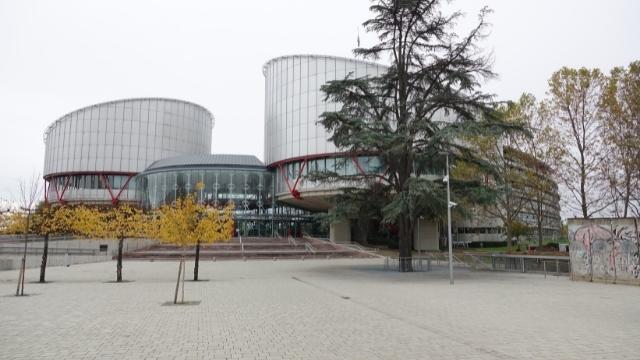In two judgments handed down on February 22, Strasbourg judges ruled that the human rights of 14 Jehovah’s Witnesses had been violated.
by Massimo Introvigné
On February 22, 2022, Russia was hit by two judgments from the European Court of Human Rights (ECHR). The two judgments related to six different cases involving the mistreatment of 14 local Jehovah’s Witnesses. Russia adopts a flawed notion of “extremism”, which allows religious organizations to be banned as “extremist” even when they do not practice or advocate violence, simply on the basis that they present their faith as “superior” to others, including the faith of the Russian Orthodox Church. Obviously, all religions believe that they offer a better way than others, including the Russian Orthodox Church itself. Nevertheless, Jehovah’s Witnesses were deemed “extremist” and “liquidated” in Russia by the Supreme Court on April 20, 2017.
Both before and after the 2017 Supreme Court ruling, Jehovah’s Witnesses and their local congregations were detained or raided by the notorious Federal Security Service (FSB) and other police agencies, who attempted to harass them in their normal religious activities and to seize “extremist” literature and other materials.
In the case of Cheprunovy and others v. Russia, the petitioners were individual Jehovah’s Witnesses and the local organization of Jehovah’s Witnesses from Kostomuksha, a town in the Republic of Karelia, Russia, near the border with Finland. The apartments of individual believers and the local organization were raided by the FSB between 2010 and 2012. “Bibles, magazines and books, and other personal items, such as computers, video recordings, pads notes and notebooks” were seized.
Download the full text of Cheprunovy and others v. Russia
In the case of Zharinova v. Russia, a female Jehovah’s Witness from Ivanteyevka, Moscow Oblast named Yekaterina Nikolayevna Zharinova was arrested and taken to the local police station on March 17, 2011, while she was going door to door preaching. She was released after a few hours, but personal effects and religious literature were seized. No report of his detention has been drawn up.
Download the full text of Zharinova
It is important to note that the issue on which the European judges had to decide was not whether Jehovah’s Witnesses were “extremists”, and Russia had the right to ban them, which is the subject of different cases. before the ECHR. At a time Cheprunovy and others and Zharinovathe question was whether the human rights and religious freedoms of those involved had been violated by the searches, seizures and detention.
the Zharinova The case dealt with the additional aspect that his detention had not been recorded, which amounted to an unauthorized deprivation of liberty within the meaning of Article 5.1 of the European Convention on Human Rights. In both cases, Russia’s defense was that law enforcement personnel are authorized by law to search for “extremist” material. In Cheprunovy and others the searches had either been authorized by a warrant or validated post factum by the courts. In Zharinovathe officers’ behavior was justified, according to Russia, by the fact that they knew that the courts had declared Jehovah’s Witnesses and their literature “extremist”, and had reason to believe that preaching their faith was not allowed.
The ECHR did not accept these arguments. He reiterated the important principle that when religious freedom and other human rights are at stake, it is not enough to rely on existing laws, administrative regulations and court decisions (without talk about the interpretation of decisions by the police). Even when the searches and detention appear “internally lawful (…), it remains to be determined whether the impugned measures were “necessary in a democratic society” and “proportionate”.
The ECHR concluded in Cheprunovy and others that “the searches were carried out without relevant and sufficient reasons and in the absence of guarantees limiting their impact to reasonable limits” and were therefore not “necessary in a democratic society”. In Zharinovathe judges also considered it disproportionate that a woman who had shown her identity papers and who did not resist the officers was taken to a police station and detained for several hours.
Importantly, the ECHR also stated that “the interruption of the [Zharinova] the door knocking followed by his detention and the seizure of religious books amounted to an “interference by a public authority” with his right to manifest his religion”, which is prohibited by Article 9 of the Convention European human rights. Once again, the ECHR has affirmed that door-to-door is a religious activity that authorities cannot prohibit, which will likely impact other pending cases where Jehovah’s Witnesses clash with Russia over the same topic.
The ECHR clearly understood that in both cases Russian citizens were subject to measures only because they were “active members of local congregations of Jehovah’s Witnesses”, as the Cheprunovy and others the judges said. This is a flagrant violation of Article 9, which prohibits religious discrimination and guarantees religious freedom.
Both decisions are final and Russia should pay a total of more than 99,000 euros (112,323 US$) in compensation for the violations.

